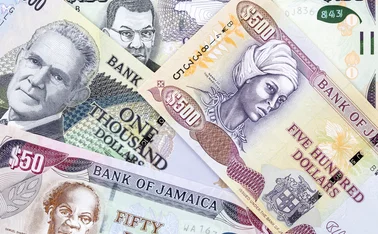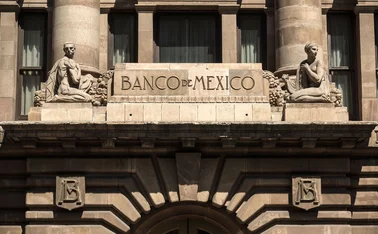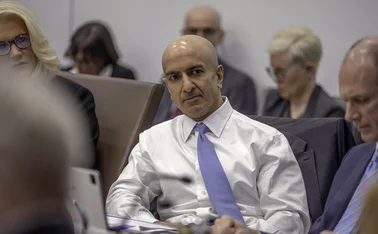
PBoC’s Zhou Xiaochuan on interest rate reform and renminbi internationalisation
Chinese central bank governor speaks about the pace and timing of reform

The renminbi is being used in more foreign trade settlements, and efforts such as the Shanghai Free Trade Zone should help drive international use of the Chinese currency. But what is the proper pace and timing for the globalisation of the renminbi?
Firstly, as renminbi internationalisation or the use of the currency in cross-border trade and investment settlement started from a very low level in a short time, the growth rate looks very high. But, in fact, the share of renminbi in global trade and investment settlement is still relatively low. There was a development opportunity for renminbi globalisation presented by the outbreak of the global financial crisis.
After the crisis, people felt unsatisfied and lacked confidence in the existing global monetary system and so began to use the renminbi. However, we still need to do a lot of ‘homework' before we can realise the globalisation of renminbi usage.
In the last few years, we have mainly focused on removing unnecessary restrictions on the use of the Chinese currency, including changing some laws and regulations. We should also eliminate discrimination against the renminbi, so it can circulate in all the areas where hard currencies are active. This work remains unfinished. So, overall, we are a long way from renminbi globalisation and need in particular to increase the renminbi's share in cross-border trade and investment settlement.
What is the role of the PBOC?
The People's Bank of China will not ‘overpromote' the use of the renminbi. Instead, it will use its policies to create the conditions that support confidence in the acceptance of the renminbi in the international community.
The choice of whether or not to use renminbi will be left to market participants. Gradually, the barriers preventing its use will be eliminated for parties that want to use it. Another important issue included in our ‘homework' is to steadily promote and gradually realise the convertibility of renminbi capital accounts. So the convenience of the renminbi in global use and people's confidence in it will substantially increase. From this perspective, we need to finish our policy reform first. But there is no prearranged pace or timeline for promoting the use of the currency.
Last year, the PBOC signed a currency swap agreement with the European Central Bank (ECB) and other European central banks. What can we expect with regard to financial co-operation between China and Europe this year?
Several European countries have shown great interest in developing renminbi business. From a Chinese perspective, we should enable those who are interested in creating offshore renminbi business centres. Whether these efforts will work or not is down to the efforts and opportunities of market participants in those centres.
With regard to our co-operation with Europe, firstly we reached a bilateral currency swap agreement for a large amount with the ECB last year. In addition, we have conducted co-operation with the European Union and the ECB in the areas of monetary policy exchanges, financial stability, cross-border financial regulation and financial standard formulation. In particular, we will work together to respond to a broad range of problems that emerged from the financial crisis, including mending financial stability standards. Frequent exchanges and co-operation have been carried out in all these aspects. The Sino-European financial relationship has been very close, and will continue to deepen and develop.
What is Hong Kong's future role in RMB globalisation?
Hong Kong's renminbi business is developing soundly, and is playing a central role not only in Hong Kong but also in the world. Hong Kong's renminbi business can help to promote the use of renminbi in many countries, especially South-east Asian countries.
Many have shown an interest in promoting renminbi business, which is good and has brought Hong Kong many opportunities. Other places also aspire to be the ‘centre'.
But the real ‘centre' should be recognised by the market because of its actual advantages and good levels of service. Hong Kong has obvious advantages over other places. Hong Kong has a tradition of being a financial hub, and has a world-class financial market, in particular its advanced equity market. Therefore, Hong Kong's position will be strengthened.
When will the control on deposit rates be removed?
Market forces are definitely driving interest rate liberalisation, and many new businesses and business models favour liberalised interest rates. The liberalisation of deposit rates should be the last step of interest rate liberalisation. Removing controls on deposit rates is surely part of the plan because many other kinds of interest rates have already been liberalised. I personally believe deposit rates will be liberalised in one or two years.
You have said the liberalisation of interest rates would increase interest rates in the short term. Will the corresponding market risk be pushed up?
In the process of interest rate liberalisation, opportunities that never existed before will definitely emerge because of the management and macro-control transition. These opportunities may bring high returns in the short term, and the market will seek out these opportunities - so, possibly, the interest rate will increase for a certain period. But with the market's role in resource allocation and broad competition, interest rates will ultimately reach a balance of general supply and demand. The effect of individual opportunities will diminish gradually.
Only users who have a paid subscription or are part of a corporate subscription are able to print or copy content.
To access these options, along with all other subscription benefits, please contact info@centralbanking.com or view our subscription options here: www.centralbanking.com/subscriptions
You are currently unable to print this content. Please contact info@centralbanking.com to find out more.
You are currently unable to copy this content. Please contact info@centralbanking.com to find out more.
Copyright Infopro Digital Limited. All rights reserved.
As outlined in our terms and conditions, https://www.infopro-digital.com/terms-and-conditions/subscriptions/ (point 2.4), printing is limited to a single copy.
If you would like to purchase additional rights please email info@centralbanking.com
Copyright Infopro Digital Limited. All rights reserved.
You may share this content using our article tools. As outlined in our terms and conditions, https://www.infopro-digital.com/terms-and-conditions/subscriptions/ (clause 2.4), an Authorised User may only make one copy of the materials for their own personal use. You must also comply with the restrictions in clause 2.5.
If you would like to purchase additional rights please email info@centralbanking.com








